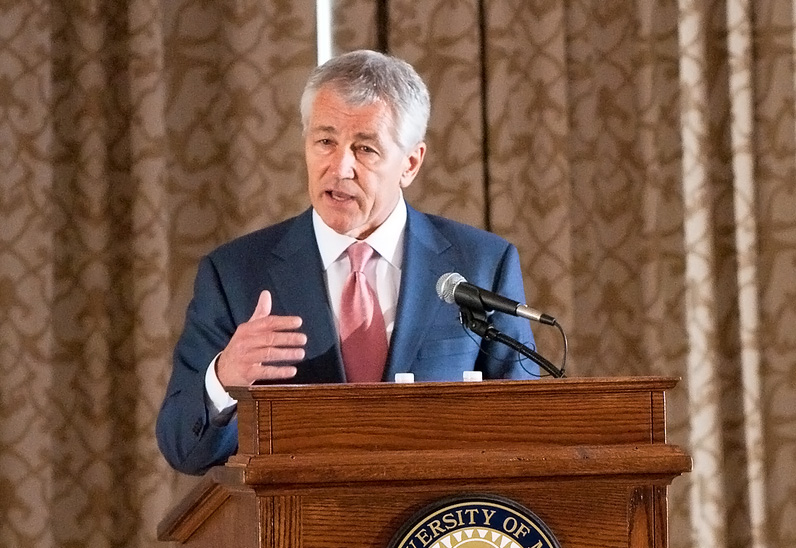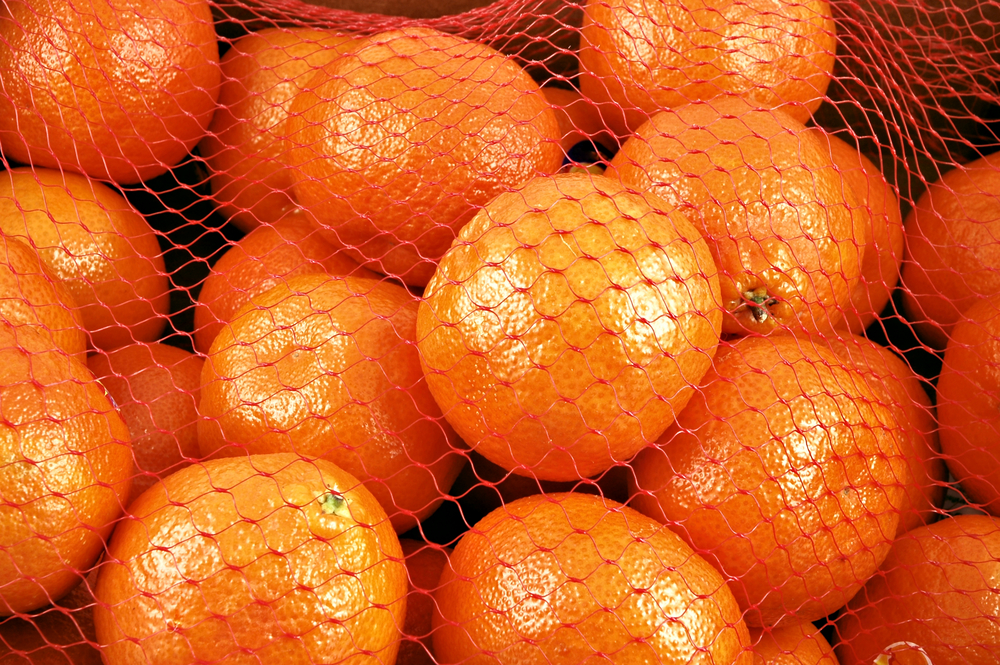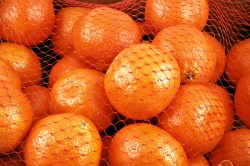Send your question to Umbra!
Q. Dear Umbra,
So it’s lovely that this time of year you can get little baby oranges in abundance, but you know those mesh nets they come in? They look dangerous. Are they killing sea critters? Should I cut every little piece apart before I throw it away like you should soda can rings? Should I stop buying them? Help!!
Laura S.
Bar Harbor, Me.
A. Dearest Laura,
It is lovely that we can buy baby oranges in deepest mid-winter, isn’t it? It’s also a sign of just how reliant we are on a massive, unwieldy global food system. But more on that in a moment.
First, those mesh nets. The packaging that has you in knots is typically made of plastic, usually polypropylene (#5) or nylon, and is often referred to as “poly mesh.” It is used to hold ungainly products like citrus, nuts, onions, and potatoes. It keeps them in one place while presenting shipping benefits over small boxes, such as being lighter and cheaper.
So is mesh the menace you imagine it to be? Well, yes. “Like all forms of plastic debris in the environment, plastic mesh bags can pose harm to marine and terrestrial animals,” says Nicholas Mallos, a conservation biologist and marine debris specialist with Ocean Conservancy. The extent of the mesh threat is unknown, Mallos says, but this graphic from the organization’s annual International Coastal Cleanup gives a good sense of how our wasteful lifestyles affect our aquatic friends.
Still, I cannot in good conscience recommend that you snip each and every tiny hole, a task that brings Madame DeFarge to mind more than anything. Instead, let us turn to our trusty three Rs: Reduce, Reuse, Recycle. First, try to avoid buying products packaged in excess plastic. Mallos points out that reusable produce bags are a handy alternative, though that will be tricky with your diminutive citrus situation, since mandarins are almost always sold pre-packaged in the U.S. Some municipalities accept these bags for recycling, so be sure to check with yours. You can also reuse the material in all sorts of ways: for household scrubbers, sachets, or placemats and coasters! Finger puppet tutus! Here are even more ideas!
But Laura, instead of fretting too much over netting, I’d rather see us all thinking harder about the food we buy. Our goal is to support our local economy, reduce our carbon impact, and enjoy the yummy benefits of eating in season. I assume that mandarin oranges do not grow in Bar Harbor in January. I know they don’t grow in Seattle. Know where they do grow? Algeria. Spain. Chile. South Africa. And lately, California and Florida.
As American consumers, we are all too accustomed to having what we want, when we want it. But getting oranges to Bar Harbor is no easy feat. The citrus sold at grocery stores is often laden with pesticides, picked early, and subjected to a long list of treatments to make sure it looks pretty on the shelf: “This process involves cleaning, waxing, grading, sizing, fungicidal treatment and final packing, and also may include degreening and coloring.” And you thought it was just a cute little orange.
I’m not going to say you should eat only parsnips and celeriac all winter, although diehard locavores might. But on a few of those long, cold nights over there in Maine, you might start thinking about how to do things differently next winter. For instance, you could load up on locally grown fruit during the summer and fall, freezing or storing it for those times when you need a jolt of Vitamin C. You might also look into creative ways to support local farmers and still get your fix: I’ve heard tell of at least one farm in Massachusetts, for instance, that partners with farms in the Southeastern U.S. to incorporate citrus into winter CSA shares. Mayhap other farms are doing, or willing to do, similar things in the name of regional foodsheds. That’s not zero-impact, to be sure, but it lessens our addiction to the global food system a bit — while still keeping scurvy at bay.
Double nom de plumely,
Polly Mesh




